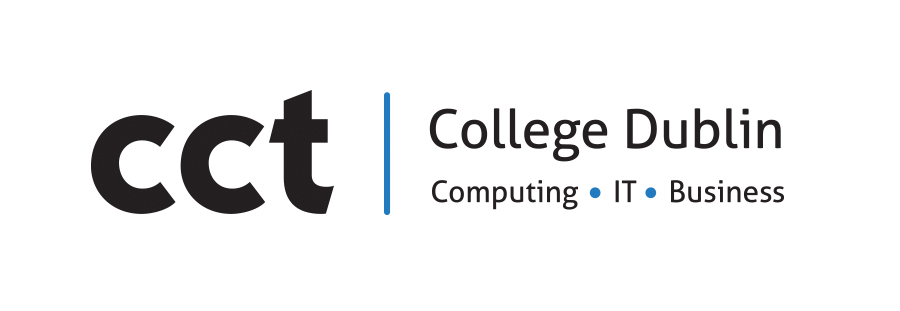MA in International Business Programme Overview
The MA in International Business is designed to produce graduates with advanced knowledge and in-depth understanding of the complexities and challenges associated with international business practice, leadership and management, the issues and drivers that inform and influence practice, and the fundamental linkages between disciplinary specialisms including strategy, risk, marketing, finance and technology.
This postgraduate programme will appeal to prospective learners seeking either a full or part time Masters programme in international business. Applicants will normally be working in, or aspiring to, leadership roles in companies engaging, or considering engaging, in international business. The programme has been intentionally designed to accommodate applicants from business disciplines as well as from non-cognate disciplines, reflecting the requirements from industry for their workforce to have diverse knowledge, skills, experience and expertise that is strengthened with the addition of business acumen specific to the international business context.
This MA in International Business will equip graduates with the ability to remain competitive and employable in an ever-advancing sector. The programme consists of eight taught modules totalling 60 ECTS which are followed by a 30 ECTS supervised applied business project. Learners who decide to leave the programme, after completing the taught elements only, may be entitled to receive the embedded exit award of a Post Graduate Diploma in Arts in International Business.
Graduates will be qualified to assume leadership and management roles and/or progress to further studies. Subject areas are diverse and facilitate the acquisition of discipline specific knowledge, skill and competence along with the development of transversal skills.
The programme is an on-campus programme supported by the College’s Moodle platform and digital tools. The programme is supported by the CCT Industry Network. Industry representatives will support the programme delivery, providing real-world and real-time business challenges and experiences, through guest lecturing, site / virtual visits, and providing real world case studies and business to support student assessment activities which includes individual and group assessment.
Students completing the Applied Research Project will research a business-initiated real-world problem. This is a group project and culminates in a peer presentation.
Read more about the MA in International Business below:
The MA in International Business postgraduate programme is intended to provide a progression opportunity for honours degree graduates, and a career development opportunity for individuals experienced in business practice, to develop mastery in the knowledge and skills necessary for leadership roles in contemporary international business.
The programme will provide learners with:
- an advanced knowledge and in-depth understanding of international business matters including but not limited to, global business strategy, business ethics, sustainability, CSR and responsible management, the global economy, cross-cultural management and leadership, international finance, technology and innovation, risk management, and digital marketing.
- resilience to the dynamic business environment, allowing them to respond to the evolving paradigms that frame international business thought and activity, and develop student’s critical thinking.
- the ability to undertake research and understand, synthesise and draw upon research reports and databases to make informed business decisions and generate solutions to business problems.
- the absorptive capacity to recognise external information, assimilate it and apply it to further the firm’s objectives.
- the transferable knowledge and skills along with a sound commitment to personal and professional development to successfully progress their careers.
This is an award stage programme comprising of a taught modules and a capstone project.
While the taught element of the programme is defined as a series of modules, the curriculum is closely integrated to facilitate learner’s understanding of the interconnected nature of different business elements and disciplines. The taught modules are primarily assessed through continuous assessment which comprises of a combination of individual and group assessments. Some assessments are integrated to address the requirements of more than one module. There is one exam within the programme. This forms part of the assessment of the International Finance module. The capstone is assessed via a supervised research project.
Global Business Strategy – 10 ECTS
This module will develop learners’ knowledge of the fundamentals of global, business and corporate strategies and their impact. The nature of resources and their capabilities and the role of institutions, culture and ethics in value creation and competitive positioning. Learners will enhance their critical thinking and problem-solving skills for evaluating the implications that lie within global strategy.
The Global Economy – 5 ECTS
This module will investigate the economic perspective of globalisation and develop learners’ knowledge and understanding of market structures and economic, business and innovation cycles. Trends in macroeconomic policy and the interaction of the State and international business will be addressed along with the role of technology in the global economy and the significance of an environmental perspective.
Research Methods and Professionalism – 5 ECTS
This module provides the critical and advanced research concepts and skills necessary for students to undertake business-oriented projects within the legal, social and ethical context of a professional work environment. The module prepares students for the capstone research.
Cross Cultural Management & Leadership – 10 ECTS
This module explores the literature relating to the main concepts, theories and frameworks relating to Cross Cultural Management and Leadership. It involves the analysis of working in and leading cross-cultural teams. The module also inculcates the learners with the skills for leading teams and groups in the various business functions they work in.
International Finance – 10 ECTS
This module deals with the increased complexity of decisions for financial managers in international companies compared to their domestic counterparts, examining the motives that drive internationalisation, modes of internationalisation, and its challenges and opportunities. The module analyses the operation of international corporations, international financial markets and international financial institutions.
Risk Management – 5 ECTS
Risk Management is a highly integrated and complementary module in the Master of Arts in International Business programme, with linkages to Global Economy, Cross Cultural Management, Leadership, Global Business Strategy and Innovation and Strategic Technology. The module develops learners’ ability to critically examine concepts, theories and methodologies relating to risk management and utilise analytical skills to assess and manage a wide variety of risk types in today’s unpredictable and fast-paced business environment.
Digital Marketing Strategy – 10 ECTS
This module develops learners’ knowledge and appreciation of the challenges facing businesses operating in the global environment by using digital marketing strategies. Learners will gain insights into the role of digital marketing and its capabilities to deliver marketing objectives. The module focuses on the impact of new technologies and perspectives on digital marketing strategy.
Innovation Strategy and Technology – 5 ECTS
This module deals with the digital transformation phenomenon currently at the forefront of legacy-based business to maintain competitiveness in a crowded international marketplace. It will focus on the emergence of identified disruptive technologies such as machine Learning and A.I. based cognitive systems, cloud storage, and technologies to support data analysis. The module deals with the application of these technologies. Knowledge gained throughout the programme will facilitate the student’s critical scrutiny of current trends in technology use as well as future possible uses of technology within a commercial sphere.
Capstone Module
Applied Business Project – 30 ECTS
This capstone module deals with the application of knowledge gained in the taught modules of the programme in a structured environment focusing on the context of International Business. The module syllabus covers reflective learning to encourage students to reflect on their own learning through dialogue and feedback with their peers and through research as the project progresses. The syllabus also covers project management tools and theory as well as the practical implementation of these tools to formulate, plan and deliver a strategic research report. There is a strong independent learning element to this module with learners completing a supervised project.
A combination of both formative and summative assessment is employed within the Masters programme. Summative assessments are completed during the taught modules and through end of module assessments. The programme engages an authentic assessment approach to provide learners with an insight into real work tasks, scenarios and challenges. Opportunities for integrated assessment are maximised to better reflect the authentic work-based problems and scenarios. The programme uses a combination of continuous assessment, examination and research project assessment methodologies.
Applicants will normally be working in, or aspiring to, leadership or executive roles in companies engaging, or considering engaging, in international business.
Applicants will require a high level of motivation and interest in the discipline, have a sound knowledge of business operations, along with the ability to think critically and logically. They will demonstrate effective analytical and evaluative skills to inform decision-making, generate ideas and provide reasoning for solutions, as well as interpret data to draw conclusions.
For admission to the programme applicants should evidence:
- An NFQ level 8 major award in Business or cognate discipline, or
- An NFQ level 8 major award in a non-cognate discipline with a minimum of 3 years employment experience in a business operations or leadership capacity or
- An RPL application from non-graduates evidencing satisfaction of the level 8 award standards for business.
RPL applications will normally comprise of significant experience, typically not less than 5 years, in a business operations, leadership or management role and or professional qualifications of relevance. The application must include evidence of the ability to produce written summaries, discussions and projects on academic and or applied matters to a level 8 standard.
For applicants whose first language is not English, English language competency required for entry must be equal to or greater than B2+ in the CEFRL. English language credentials endorsed by other systems (viz. IELTS, TOEFL, PTE, Cambridge, Duolingo etc.) will be assessed to ensure they meet this minimum standard.
Applications on the basis of experiential learning or informal / non-formal learning must evidence an applicant’s potential to succeed through demonstration of ability to pursue the programme at the applicable NFQ level, in the discipline area concerned, and benefit from the programme of study in question. The ability to produce written summaries, discussions and projects on academic and applied matters will be important.
Evidence may be provided through:
- Prior study and qualifications, including CPD, short courses and professional awards as well as NFQ awards
- Work experience and achievements
- Other experiential learning obtained through volunteering or non-employment experience
- Successful completion of an entry assessment set by the College
- A combination of the above
On successful completion of the programme, graduates will be well placed to progress to further study, including level 10 doctoral studies, subject to the requirements of the institution to which they apply.
Research and government publications evidence employment opportunities for business graduates and for those with higher level qualifications. Potential employment opportunities for graduates of the Masters programme include a range of leadership and management positions in small, medium, large and multinational companies across a range of industry sectors.
We are hosting a number of events in the lead up to the next academic year to give prospective students the opportunity to find out more about their course and the College. At the moment these events are virtual and you can pre-register here.
You can also make a safe socially distanced 1-2-1 appointment with an Admissions Advisor in the College campus building here from 9am-5pm Monday to Friday.
All QQI accredited programmes of education and training of 3 months or longer duration are covered by arrangements under section 65 (4) of the Qualifications and Quality Assurance (Education and Training) Act 2012 whereby, in the event of the provider ceasing to provide the programme for any reason, enrolled learners may transfer to a similar programme at another provider, or, in the event that this is not practicable, the fees most recently paid will be refunded.


